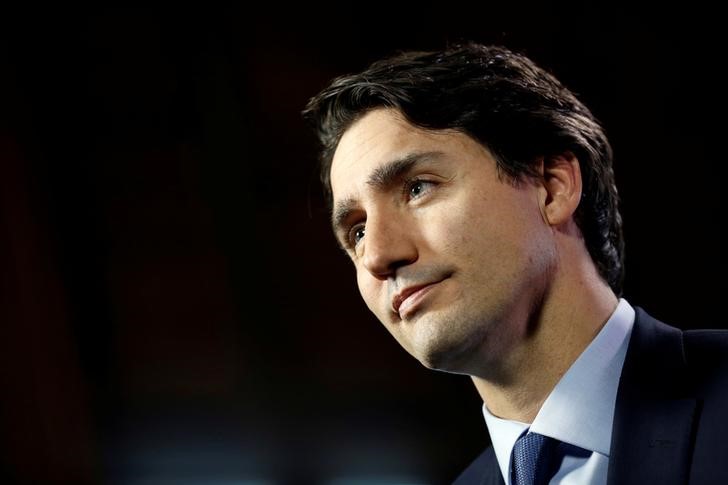By David Ljunggren and Leah Schnurr
OTTAWA, July 5 (Reuters) - Critics attacked Prime Minister Justin Trudeau on Wednesday for his planned move to pay millions to a Canadian citizen held at Guantanamo Bay for a decade but insiders and experts said Ottawa had little choice but to settle for an expensive compromise.
Reuters reported on Tuesday that Trudeau's Liberal government would pay Omar Khadr around C$10 million ($7.7 million) and offer a formal apology to compensate him for abuses he suffered as an inmate at the U.S. military prison in Cuba. of the deal noted the Supreme Court had ruled three times in favor of Khadr. In 2010, it said Canada breached his rights by sending intelligence agents to interrogate him and sharing the results with the United States.
"The Supreme Court rulings were very clear. This is about respecting fundamental human rights in Canada," said one person with knowledge of the case, who asked to remain anonymous given the sensitivity of the matter.
The Globe and Mail and Toronto Star, two of Canada's most influential newspapers, on Wednesday ran editorials welcoming the settlement.
Khadr, 30, was captured in Afghanistan in 2002 at age 15 after a firefight with U.S. soldiers. He pleaded guilty to killing a U.S. Army medic and became Guantanamo's youngest prisoner.
The opposition Conservative Party, which was in power for most of the decade that Khadr spent in Guantanamo, said it was wrong to pay someone who had admitted a serious crime.
"It's a tragic case on all levels but we can't excuse the behavior of Mr Khadr and to certainly almost reward it in this way is, I think, a travesty," legislator Erin O'Toole told the Canadian Broadcasting Corp.
The political impact for Trudeau looks to be limited. The next election is not until October 2019 and the Liberals still enjoy a healthy lead in voter surveys.
"First of all, a lot of this is inside baseball. Secondly, it's pretty clear Omar Khadr has been a victim," Nanos Research pollster Nik Nanos said.
Khadr is suing Ottawa for C$20 million and the government would have weighed the political damage of continuing to fight him in court, said Professor Audrey Macklin, chair of human rights law at the University of Toronto.
"A protracted litigation case would be very, very expensive ... and would lead almost inevitably to the disclosure of evidence that would bring the government of Canada into disrepute," Macklin said.
($1 = 1.2973 Canadian dollars)
